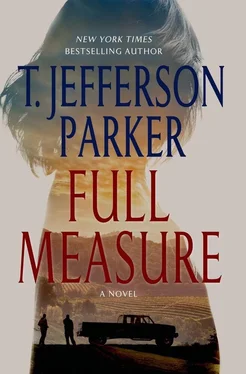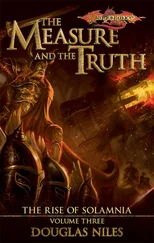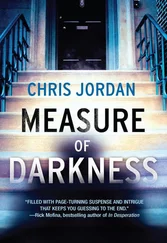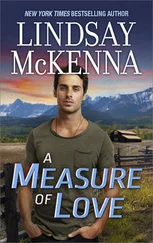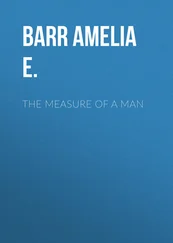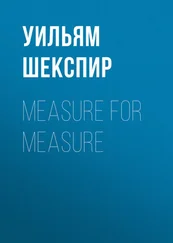“I wish I had seen something,” said the first. “That would have been cool. All I saw was smoke and Mom trying to catch the cat.”
By noon there had been far fewer attendees than Evelyn had expected. She knew why, too — because the routed, exhausted, burned-out, and grieving people of her city understood that, in practical terms, their government could do very little for anybody. The city could offer bottled water donated by Major Market. There were pallets of it stacked up beside her table, heavy twenty-four-packs, all free. And the Red Cross had come through with bags of rice and beans, boxes of hot cocoa mix and marshmallows, though most if it was quickly claimed by people Evelyn knew to be the local poor, most of whom lived downtown, which was untouched by the fire. And that was about all the help the City of Fallbrook could give.
Evelyn left her table to check out the FEMA trailers, which were set up directly across from her position. She saw battle-ready ICE and DHS and Border Patrol agents and wondered how they fit into disaster relief. She approached and found the FEMA tables sagging under a bounty of puzzling donations: box after box of ocean-scent deodorant bar soap, large bottles of cider vinegar, cheap socket-wrench sets, cotton balls, bagged garlic cloves, two-packs of aerosol air freshener, bundles of week-old magazines, cartons of single-serve crouton pouches, and pile upon pile of new jeans all in one size — thirty-six-inch waists, thirty-inch inseams. Pawing through the jeans, looking for just one pair in a varying size, was like seeing into the mad mind of government itself, thought Evelyn. So much waste. So many good intentions. Who’s governing it?
She went back to her table and straightened the stacks of pamphlets and sat. Her video detective droned on about arson. From this elevation she could see the blackened hills to the east and south, and the San Luis Rey River Valley still mostly green and spared the burn, and a small housing tract, Meadows, to the north. Meadows was newer and hard-hit by the mortgage meltdown and real estate crash, and Evelyn knew two families who had lived in that tract and just recently sold short and left Fallbrook. The parents of one family were both in the mortgage business itself — loan originators. The other family’s breadwinner was a project manager for a commercial builder, and was laid off with little chance of finding work in that moribund industry. Adios. Now the fire had raged through it and Meadows looked as if it had hosted a neighborhood war, some homes burned flat, some scorched but standing, maybe half of them left untouched. Even at this distance Evelyn could see a family picking through the rubble of one house, while across the street an older man stood and watched the sprinklers water his lawn.
“We’re staying over at the Baptist church for a few days,” a bedraggled woman told her. She had two small children with her. She lifted a pamphlet, scanned it, and set it back under the rock. “They’ve been good to us there. Hot meals and cots. It’s chilly at night. We’re not even Baptist but maybe we’ll consider joining up.”
“You’re free to take all the water you can carry.”
“We’ve got plenty of water, thank you. Did you see this?”
The woman handed her a flyer entitled “Take Back Main Street!”
“Cade Magnus,” said Evelyn.
“I had no idea he was back.”
“Where did you get this?”
“There was a stack of them at the Donut Bin this morning. And they’re all over the telephone poles and bulletin boards in town.”
Evelyn wondered why Cade Magnus would even want to come back to a town that disliked him. “It’s like having a relapse of cancer. It was so nice just to be rid of his father and him.”
“My husband has never met those people,” said the woman. “But he wants to join the protest. He said Main Street needs taking back. Plus he has guns, so he’d fit in. He’s a good man, don’t get me wrong.”
“The less he has to do with Cade Magnus the better. Oh, wait a minute — I’m the mayor and I can’t oppose lawful assembly. I will not oppose lawful assembly, because that would mean Cade Magnus wins? Right? Just tell your husband to exercise caution. We don’t need people carrying guns around Fallbrook.”
“I agree.”
“Thanks for coming by. I’m sorry there isn’t more the city can do for you.”
“Our house burnt to the ground and we’re underinsured.”
“Talk to FEMA. They’re good at plugging those kind of financial holes.”
“Already did. We’re still a hundred grand short of a rebuild. Credit’s completely shot. So, we can sell the lot or build something smaller. Real small, like a dog house. You should have seen what a nice home we had. Not big, just... home . An actual white picket fence, roses, everything. I always loved that sentimental stuff. It stood for something.”
“Good luck. I mean that.”
“Too late, but thanks anyway.”
Evelyn talked to several more people who were being sheltered in various churches and in the synagogue. She asked lots of questions and concluded the worship centers were outperforming government relief agencies about ten to one. She decided to stop by the Presbyterian church after this, the one that she attended on major Christian holidays, just to see if they needed her help. She vowed to go there more regularly, though she dearly loved sleeping in on Sunday mornings.
Special Agent Knechtl, pale-faced and wearing a gray suit, appeared at Evelyn’s table. He was slender and tall, with a domelike forehead, brief mustache, and soulful, almost pitying eyes. He looked behind him then turned his attention back to her. “Mayor.”
“So we meet again, Agent Knechtl.”
“It’s special agent, but you can call me Max.”
“Okay.”
“Tell me what you know about Theodore Norris.”
“Almost nothing. I’ve known him since he was born but never well.” Special Agent Max Knechtl inspired noncompliance in her. He looked embalmed, but should she judge by looks? Maybe he had cancer. Maybe he was a great guy. She looked up at him, unable to fake a smile, and said nothing.
“Mayor, if you’ve known Theodore for twenty-six years you must have noticed more than that.”
“More than what?”
“Than almost nothing.” He waited, looking down on her with brooding concern. “I saw his cartoon online. It didn’t amuse me. Has he ever threatened you?”
“No, of course not.”
“Has he ever contacted you in any way?”
“I babysat him once and he sent me a thank-you card that he’d made.”
“When was this?”
“Seventeen, eighteen years ago? I no longer have the card.”
“He made it? What theme or motif did he use?”
“You’re serious?”
“Three innocent lives are serious to me.”
“Exactly what department, or bureau or agency, are you with again?”
“I’m a special agent of the Homeland Security Department, Homeland Security Investigations — formerly Immigration and Customs Enforcement, or ICE — which is part of the Joint Terrorism Task Force, or JTTF, Western Division, South Sector.”
She was momentarily speechless, but slowly gathered her senses by an act of will. “Well... the card made for me by Ted Norris was a piece of red construction paper with a picture of a frog on it. I think it was a frog. He was nine years old or something.”
“Why did you only babysit him once?”
“I misspoke. I meant to say, one time I babysat him and he sent me a thank-you card. Not that I babysat him only one time.”
He nodded and turned around again to see if they were still alone. “Has he contacted you since the cartoon posting?”
“He apologized by e-mail but I chose not to respond.”
Читать дальше
